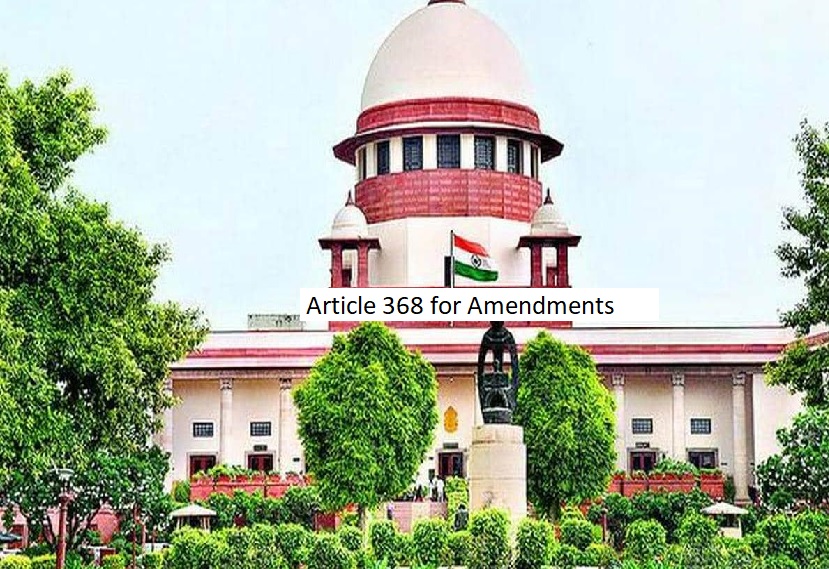


In the Article 370 case, the Supreme Court emphatically declared that alterations to substantive constitutional provisions cannot be executed through executive notifications. The Court clarified that amendments must adhere to the stipulated Article 368 procedure, necessitating the passage of an amendment bill in Parliament with the prescribed majority. Executive notifications are deemed insufficient for constitutional modifications, underscoring the exclusive role of the parliamentary process in this context. The judgment underscores the importance of adhering to the constitutionally mandated procedure for amending substantive provisions, ensuring a robust and democratic process in line with Article 368 of the Constitution.
In the case related to Article 370, the Supreme Court unequivocally ruled that executive notifications cannot effect amendments to substantive constitutional provisions. The Court clarified that alterations must adhere to the prescribed procedure under Article 368, requiring the passage of an amendment bill in Parliament with the designated majority. This pronouncement specifically addressed the executive's inability to use notifications for constitutional modifications, underscoring the paramount role of the parliamentary process.
The Constitution Bench, in its decision, invalidated a segment of the President's notification (Constitution Order 272), which added a clause to Article 367. This clause specified that references to the "Constituent Assembly of Jammu and Kashmir" should be interpreted as the "Legislative Assembly of Jammu and Kashmir," and the "Government of J&K" could be construed as the "Governor of J&K." These changes facilitated the issuance of the subsequent Constitution Order, CO 273, declaring Article 370 inoperative without the recommendation of the dissolved J&K Constituent Assembly, as mandated in the proviso to Article 370(3).
Article 367, housing interpretation clauses defining certain terms in the Constitution, underwent changes through Presidential notification (CO 272), a move disapproved by the Court. The Court asserted that these changes substantially affected Article 370, shifting the recommending body for abrogation from the J&K Constituent Assembly to the J&K Legislative Assembly. Consequently, the alterations to Article 367 were deemed an amendment to Article 370.
Chief Justice DY Chandrachud, dissenting from this unconventional amendment method, stated in the judgment, "While the 'interpretation' clause can be used to define or give meaning to particular terms, it cannot be deployed to amend a provision by bypassing the specific procedure laid down for its amendment. This would defeat the purpose of having a procedure for making an amendment" (Para 389). The judgment warned against the consequences of permitting amendments through such a circuitous manner, deeming it "disastrous" and emphasizing that bypassing prescribed procedures could render many constitutional provisions susceptible to unauthorized changes (Para 390).
The judgment illustrated the potential danger with a hypothetical example concerning Articles 243D, 243T, 330, and 332, which provide for the reservation of seats for Scheduled Castes. It raised the question of whether a public notification could delete all castes, races, or tribes from the list of Scheduled Castes without following the prescribed procedure under Article 368. Such an action, the Court contended, would obviate the mandates of these articles without adhering to the constitutional amendment process.
Despite nullifying the changes made to Article 367 through CO 272, the Court upheld the repeal of J&K's special status. It reasoned that the President did not require the recommendation of the J&K Constituent Assembly to issue a declaration that Article 370 was inoperative, thereby affirming the validity of CO 273. This comprehensive decision underscored the importance of adherence to established constitutional procedures, preventing unauthorized amendments and ensuring the integrity of the constitutional framework.
TAGS: Article 370 Supreme Court Constitutional amendments Executive notifications Article 368 Parliament